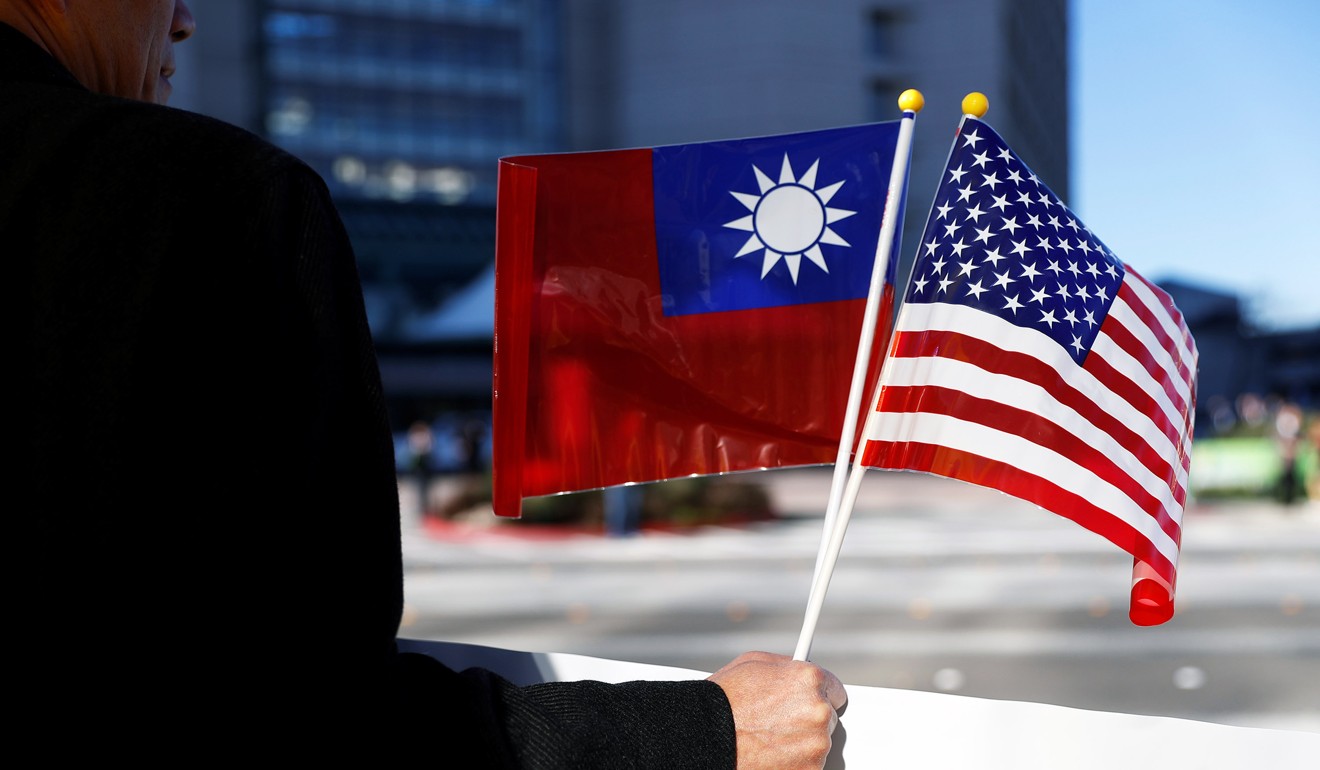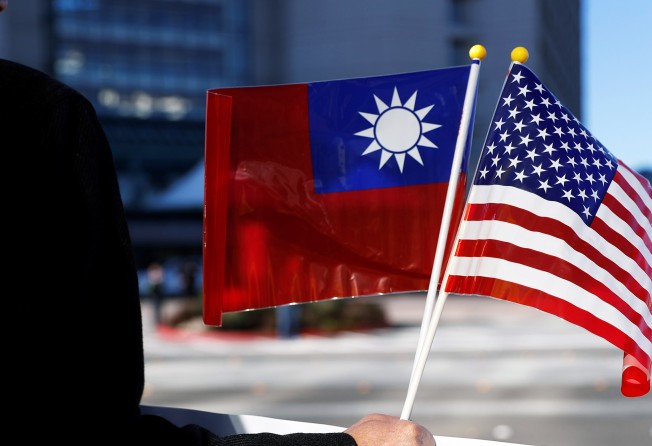
United States won’t allow force against Taiwan, new US envoy says as Beijing piles on pressure
- Washington opposed to unilateral threats to change island’s status quo, Brent Christensen says

The United States will not stand by to allow any non-peaceful attempt to unilaterally alter the status quo of Taiwan, a senior US diplomat has said in an apparent warning against Beijing’s threats to retake the self-ruled island, by force if necessary.
Washington would also do all it could to help Taiwan rejoin some international organisations such as Interpol, the official said, despite strong protests from Beijing, which considers Taiwan a wayward province.
In his debut press conference on the island on Wednesday, Brent Christensen, the new director of the US de facto embassy, the American Institute in Taiwan, signalled stronger US support for the island in the face of persistent pressure from Beijing against Taipei.
“I am here to tell you that US policy towards Taiwan has not changed,” Christensen said.
“Any effort to determine the future of Taiwan by other than peaceful means represents a threat to the peace and security of the Western Pacific area and is of grave concern to the United States.
“We are opposed to unilateral attempts to change the status quo.”
Since Tsai Ing-wen, of the independence-leaning Democratic Progressive Party, became the island’s president in 2016 and refused to accept the one-China principle, Beijing has stepped up pressure against Taiwan, including staging war games around the island and poaching five of Taipei’s allies. It has also demanded that international companies, including airlines, change the title of Taiwan to either a Chinese province or “China, Taiwan” to indicate that the island is a part of China.
The principle is part of an understanding reached in 1992 between unofficial representatives of Beijing and Taipei that there is only “one China”, but each side would have its own interpretation of what constitutes “China”.

Christensen said that as the new US envoy to Taiwan he would do all he could to promote security cooperation between Washington and Taipei, saying “promoting security cooperation and improving Taiwan’s self-defence capability go hand in hand”.
He also said it was the US’ “obligation to support Taiwan in maintaining a sufficient self-defence capability against coercion” and this policy was consistent for both the Democratic and Republican parties. He cited the Trump administration’s approval of two arms sales, including the US$330 million deal for spare parts for the island’s F-16s and other warplanes, as examples of that commitment.
He said one of his four priorities as the institute’s director was to promote Taiwan’s participation in the international community.
“As we face a multitude of global challenges – the impacts of global health pandemics; transnational terrorism and crime; and the insidious spread of disinformation, to name a few – we cannot afford to exclude a society [Taiwan] with so much to offer the world,” he said.
He said the US had long been a vocal supporter of Taiwan’s meaningful participation in international organisations. “We continue our informal consultations and engagement to allow Taiwan to have a more substantive role in the international community,” he said, adding that the broader engagement would benefit the global community.
He said he expected high-level US officials would visit Taiwan in line with the newly enacted Taiwan Travel Act, which allows exchanges of top-level officials between Taiwan and the United States.
Christensen said the institute would move to its US$255 million new compound at the end of this year and he hoped it would be a good chance for a high-level US official to visit.
Christensen’s comments are expected to again infuriate Beijing, which has loudly protested against the US for supplying arms to Taiwan and allowing senior officials to visit the island – acts the mainland says violates the one-China policy that Washington committed to observe after switching official recognition to Beijing.